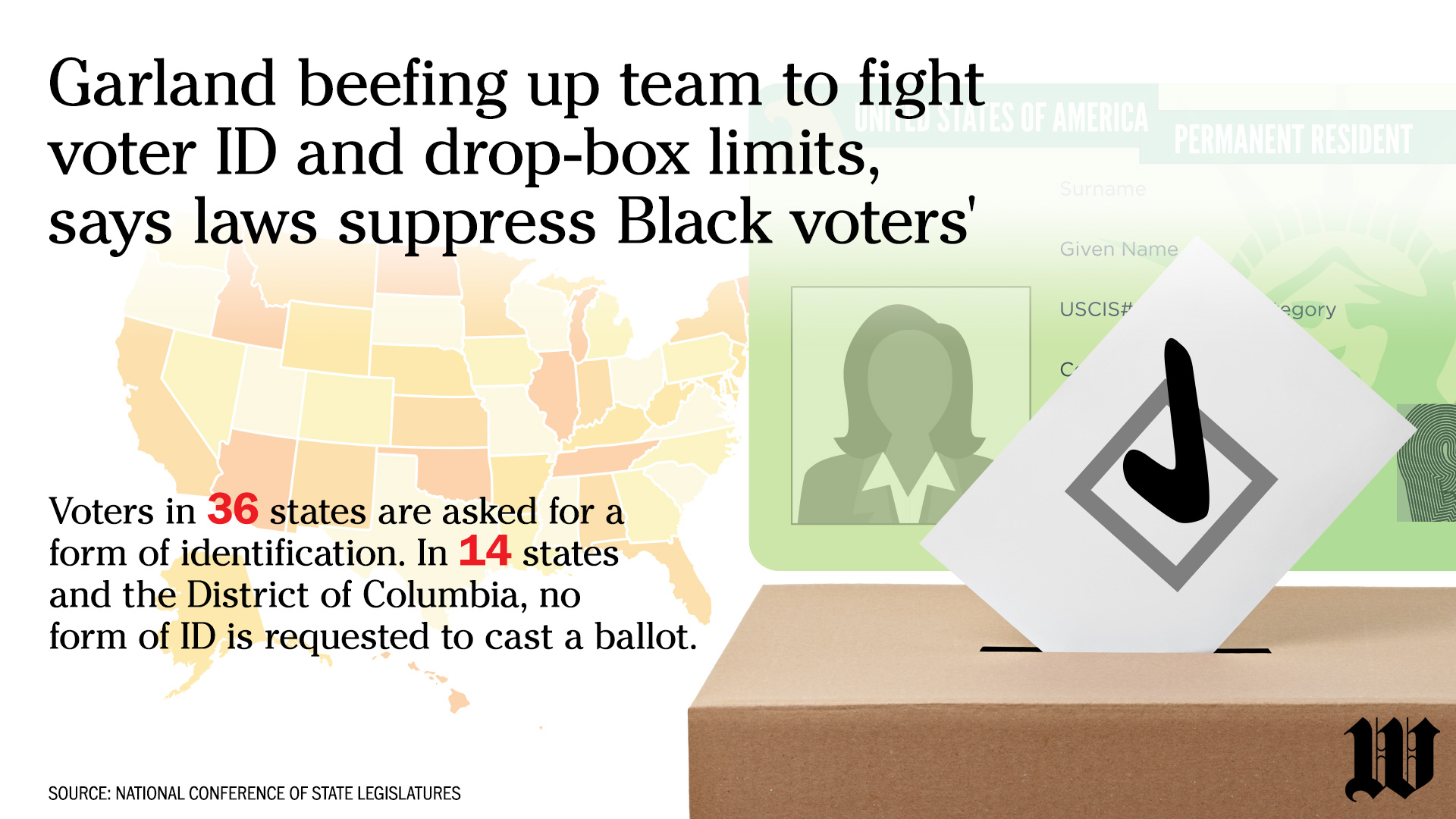Attorney General Merrick Garland said on the eve of the Super Tuesday primaries that states requiring voter ID at the polls and restricting drop boxes are suppressing Black voters, and the Justice Department has doubled the number of its lawyers to fight those laws.
Mr. Garland said recent court decisions have “drastically” weakened the 1965 Voting Rights Act, and that in the wake of those rulings, states have dramatically increased laws that make it harder for millions of eligible voters to vote. He said such measures “threaten the foundation of our system of government” and that the Justice Department is “fighting back” with more lawyers in its Voting Section of the Civil Rights Division.
“That is why we are challenging efforts by states and jurisdictions to implement discriminatory, burdensome, and unnecessary restrictions on access to the ballot, including those related to mail-in voting, the use of drop boxes, and voter ID requirements,” Mr. Garland said Sunday at the Tabernacle Baptist Church in Selma, Alabama.
Voters in 36 states are asked for a form of identification. In 14 states and the District of Columbia, no form of ID is requested to cast a ballot.

According to the National Conference of State Legislatures, eight states have implemented voter ID laws since the 2020 election: Arkansas, Idaho, Missouri, Montana, Nebraska, North Carolina, Ohio and Wyoming.
The laws are expected to impact about 29 million adults, and 1 in 6 voters who must abide by new voter ID laws live in key battleground states: Arizona, Georgia, Michigan, Nevada, North Carolina, Pennsylvania and Wisconsin.
Voters in North Carolina and Arkansas on Super Tuesday will also face stringent voter ID laws.
Responding to Mr. Garland, a Republican National Committee spokesperson said polling, including a recent Pew Research Poll, shows that 88% of Americans support voter ID, including 82% of Black voters and 83% of Hispanic voters.
The spokesperson, who spoke on the condition of anonymity, said President Biden used the same rhetoric as Mr. Garland when Georgia passed new voting legislation in 2021, but turnout spiked in the next election cycle. According to a 2023 UGA poll, no Black Georgia voters rated their voting experience as “poor” under the new law.
“The idea that widely supported election integrity measures are somehow inherently discriminatory is little more than a conspiracy theory,” the RNC spokesperson said.
The Washington Times reached out to the Justice Department for comment but did not hear back.
Mr. Garland spoke during the 59th commemoration of “Bloody Sunday,” the 1965 Civil Rights march across the Edmund Pettis Bridge in Selma, when racial tensions erupted and violence broke out as the marchers were met by state troopers. Some of the state troopers beat the marchers with clubs.
The attorney general said, while there has been much progress made to push forward equal voting rights, much is left to be done.
“Indeed, throughout our country’s history — before Bloody Sunday, and after — the right to vote in America has been under attack,” Mr. Garland said. “It was under attack in the wake of the Civil War and amidst Reconstruction, when White supremacists used violence and threats of violence to stop Black Americans from exercising their right to vote.”
Mr. Garland said the Justice Department was founded with the primary purpose of protecting the rights guaranteed in the 13th, 14th, and 15th Amendments, which abolished slavery, granted citizenship to former slaves and granted Black men the right to vote. He said places like Selma created Jim Crow laws and implemented impossible-to-pass proficiency tests.
“And the right to vote was under attack on Sunday, March 7, 1965, when civil rights activists set out to march from Selma to Montgomery and were met with horrific violence,” he said, which ushered in the Voting Rights Act of 1965, “which gave the Justice Department important authorities to protect the right to vote.”
He credited the 59-year-old law for the Justice Department being able to block more than 1,200 “restrictive voting changes in jurisdictions with a history of suppressing the vote.”
• Kerry Picket can be reached at kpicket@washingtontimes.com.




Please read our comment policy before commenting.